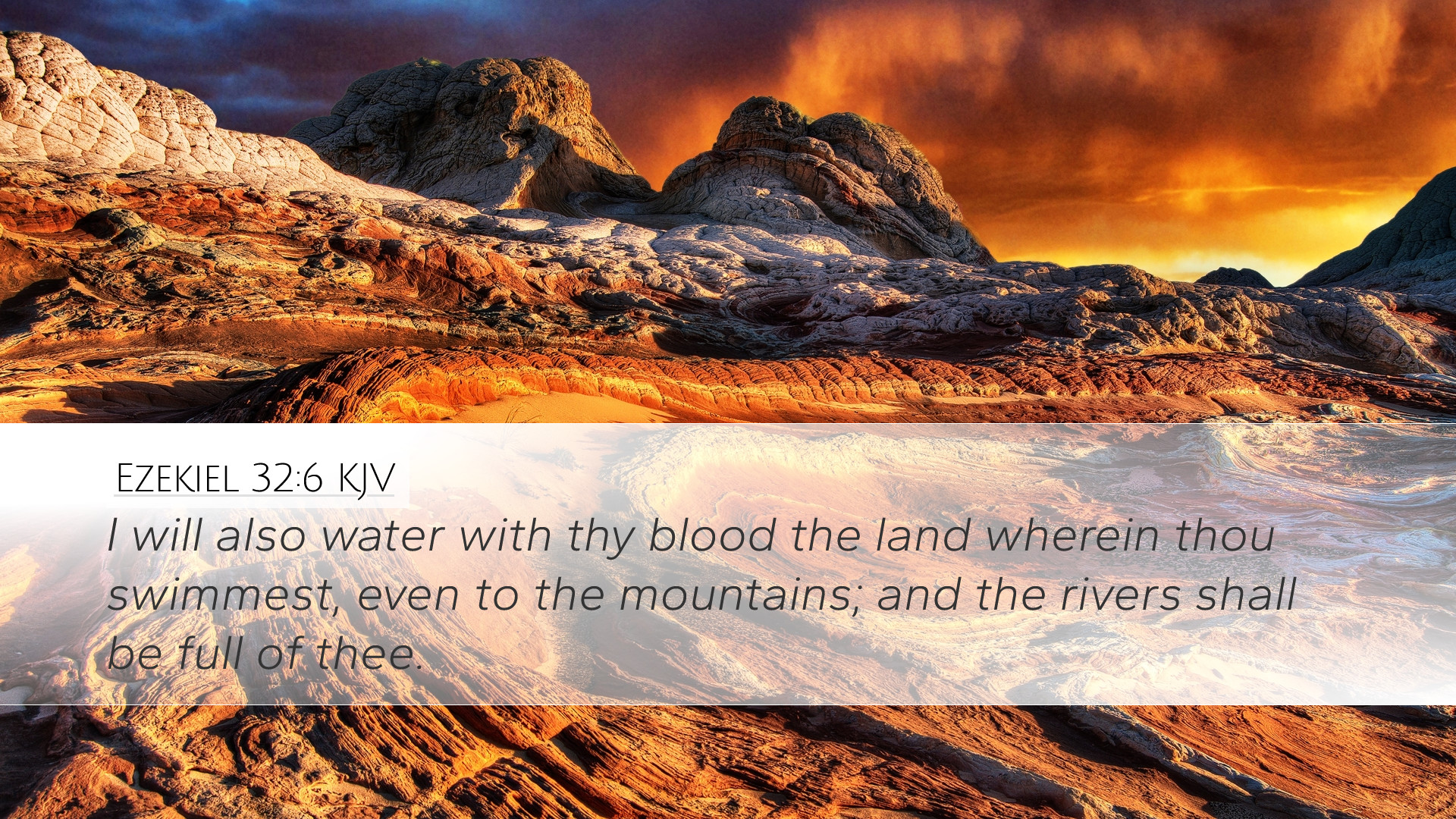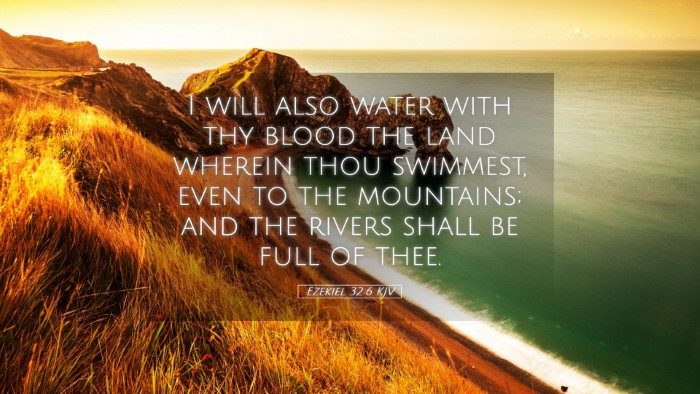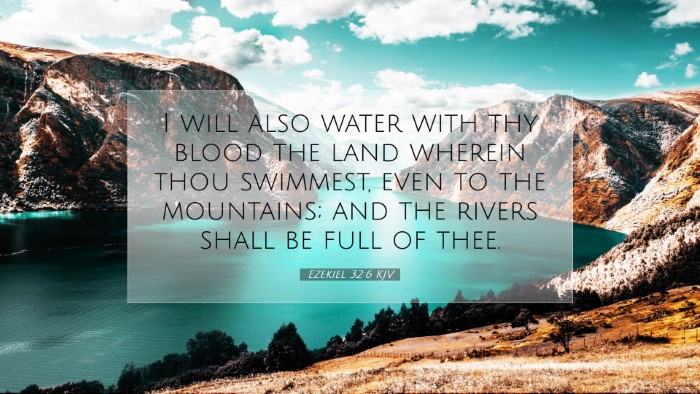Ezekiel 32:6 Commentary
Bible Verse: "I will also water with your blood the land wherein you swam, even to the mountains; and the rivers shall be full of you." (Ezekiel 32:6)
Introduction
The verse Ezekiel 32:6 serves as a vivid depiction of divine judgment against Egypt, illustrating the consequences of pride and oppression. Ezekiel uses graphic imagery to convey the profound impact of this judgment, emphasizing both the spiritual and physical ramifications of the nation's behavior. Drawing from the insights of various public domain commentaries, we can glean deeper meanings and implications of this passage for contemporary readers including pastors, students, theologians, and scholars.
Contextual Background
Ezekiel, a prophet and priest during the Babylonian exile, spoke primarily to the Israelites in captivity. The prophetic messages often reflected the dire circumstances of judgment, loss, and hope. The specific chapter 32 falls into a larger narrative concerning the judgment against various nations, particularly Egypt. Understanding the socio-political climate of the time reveals the significance of God’s message through Ezekiel.
Historical Significance
The nation of Egypt held great power and pride, often seen as a symbol of oppression against the Israelites throughout their history. God's judgment on Egypt, portrayed through the prophet Ezekiel, serves as a reminder of the ultimate sovereignty of God over nations and the moral consequences of ignoring divine law.
Commentary Insights
Below, we summarize insights from notable commentators on this passage.
Matthew Henry's Commentary
Matthew Henry emphasizes the absolute sovereignty of God in executing judgment. He writes about the metaphor of the land being "watered with blood," symbolizing the extensive devastation that awaited Egypt due to its sins. Henry draws attention to the arrogance of Egypt, comparing it to a beast in the sea that is ultimately subdued. He notes:
- The Scope of Judgment: The bloodshed represents not just military defeat but a spiritual reckoning with the nature of sin.
- Divine Retribution: Henry explicates that God's judgment serves both as punishment and as a means of clearing the land of moral corruption.
Albert Barnes' Notes
Albert Barnes provides further analysis, focusing on the language used in the Hebrew text. He notes the striking imagery of rivers overflowing with blood, which underscores the complete annihilation of Egyptian forces. Barnes comments on several key themes:
- The Imagery of Blood: This vivid image reflects the extensive loss of life and the severe consequences of rebellion against God.
- Consequences of Idolatry: Barnes links the judgment of Egypt to its idolatrous practices and failure to recognize Yahweh’s authority, culminating in disaster.
Adam Clarke's Commentary
Adam Clarke adds richness to our understanding by exploring the cultural and geographic significance of the region. He highlights:
- Geographical Context: The “land” refers to the whole of Egypt, where the imagery of mountains and rivers signifies the depth of destruction.
- Theological Implication: Clarke points out that this judgment serves as a warning to all nations about the repercussions of national pride and unfaithfulness to God.
Applications for Today
The commentary on Ezekiel 32:6 provides timeless insights that resonate with the modern believer.
- Awareness of Sin: Just as Egypt faced judgment, the Church today must remain vigilant against pride, idolatry, and moral decay.
- God's Sovereignty: The passage reinforces that God is sovereign over nations and individuals, calling for humility and repentance.
- Call to Action: Pastors and teachers can utilize this commentary to lead congregations in understanding the seriousness of sin and the importance of pursuing righteousness.
Conclusion
Ezekiel 32:6 serves as a powerful reminder of God's judgment against pride and iniquity. Drawing from the insights of Matthew Henry, Albert Barnes, and Adam Clarke, we see not only the historic context of this judgment but also its theological implications for today. The imagery of blood and ruin found in this verse challenges us to consider the weight of sin and the necessity for obedience to God’s commands in our own lives and communities.


